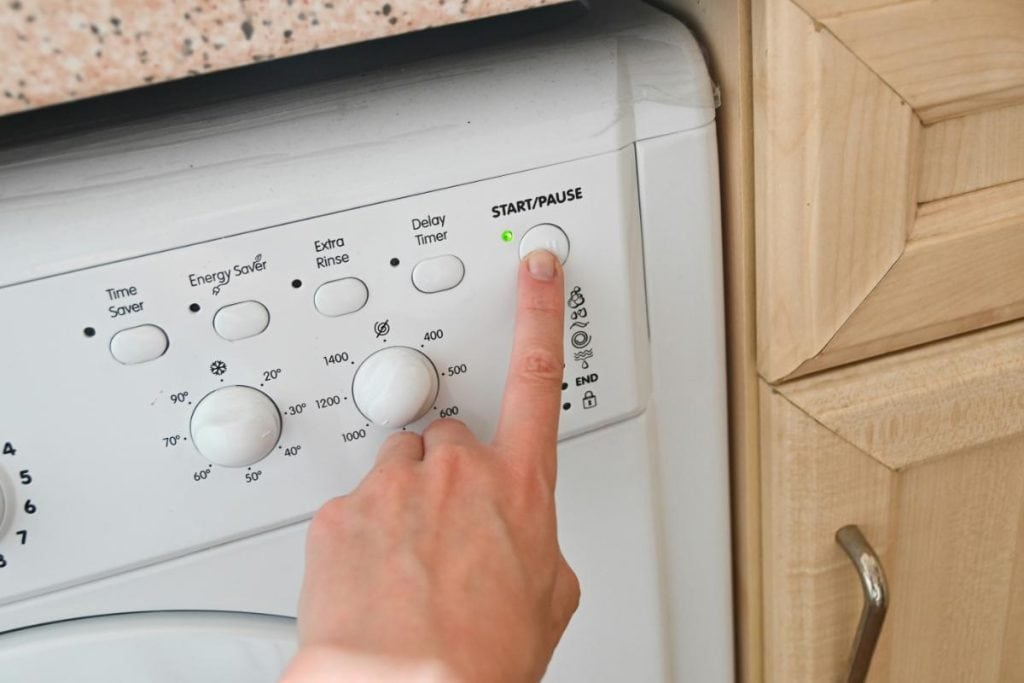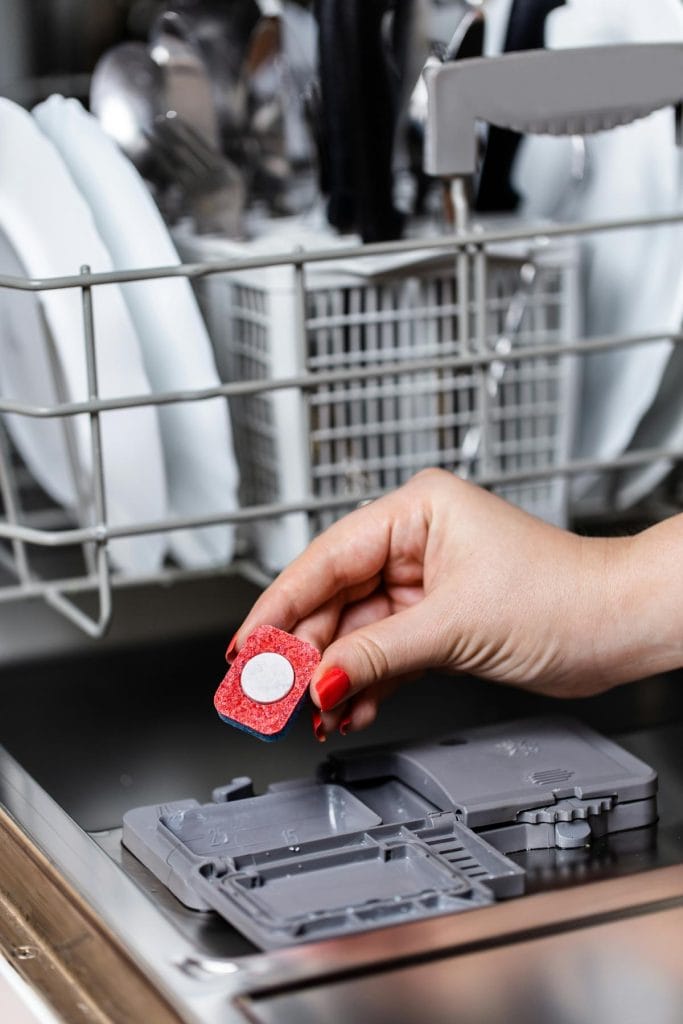Your dishwasher is a modern convenience that saves you time and energy in the kitchen. Whether you’re hooking up a dishwasher for the first time or maintaining a long-serving unit, it’s essential to recognize when your appliance needs some attention. Like any hardworking appliance, your dishwasher isn’t immune to wear and tear. Recognizing the signs that your dishwasher needs repair can help you address issues early, potentially saving you from costly replacements down the line. Here are 6 tell-tale signs that it’s time to call in a professional for your dishwasher.

1. Strange Noises
A well-functioning dishwasher should operate with a gentle hum. If your once-quiet kitchen appliance is now annoyingly loud, it’s time to pay attention. Strange noises coming from your dishwasher can indicate various problems.
Grinding sounds might suggest that there’s something caught in the chopper blade area. Thumping or knocking could mean that a spray arm is hitting something as it rotates. Excessively loud humming may indicate issues with the motor or pump.
Clicking noises, especially if the dishwasher isn’t running through its cycles, could point to problems with the control panel or timer.
2. Water Leaks
Finding a puddle around your dishwasher is never a welcome sight. Not only can leaks damage your flooring and cabinetry, but they can also create an environment ripe for mold growth. Water leaks can stem from several issues.
Worn door gaskets may no longer create a watertight seal. Loose or damaged water inlet or drain hoses can also cause leaks. In some cases, a damaged tub or cracked liner might be the culprit. Problems with the float switch, which regulates the water level, can also lead to water escaping from your dishwasher.
If you notice water where it shouldn’t be, it’s important to act quickly. You might need to look for comprehensive home appliance repair in Austin to diagnose and fix the problem before it leads to water damage in your kitchen. In the meantime, place towels around the base of the dishwasher and avoid using it until a professional can take a look.
3. Dishes Aren’t Coming Out Clean
The primary function of a dishwasher is to clean your dishes, so if it’s failing at this basic task, there’s clearly a problem. If you’re noticing food particles, grime, or soap residue on your dishes after a cycle, several issues could be at play.
Clogged spray arms can prevent water from reaching all areas of the dishwasher. A malfunctioning pump might not be circulating water effectively. Issues with water temperature can also impact cleaning efficiency – if the water isn’t hot enough, it won’t clean as effectively.
Problems with the detergent dispenser can prevent proper release of soap during the cycle. Build-up of hard water deposits or food particles in various components can also hinder your dishwasher’s performance.
That said, check that you’re loading it correctly and using the right type and amount of detergent. If these basics are covered and you’re still seeing dirty dishes, it’s time to call in a professional.
4. Unpleasant Smells
Your dishwasher should leave your dishes smelling fresh and clean, not funky or musty. If you’re catching whiffs of something unpleasant, it’s a sign that something’s not right. Common causes of dishwasher odors include trapped food particles in the filter or spray arms and mold or mildew growth due to constant moisture.
Stagnant water in the bottom of the dishwasher due to drainage issues can also lead to bad smells. Sometimes, a buildup of bacteria in various components can be the source of the odor.
While regular cleaning can help prevent and sometimes resolve odor issues, persistent smells might indicate a more serious problem. This could include issues with the drain hose, pump, or even the presence of mold in areas you can’t easily reach.
Give your dishwasher a deep clean to see if that fixes the issue. If it doesn’t, a thorough inspection and cleaning by an expert can restore your dishwasher to its fresh-smelling state.
5. Washing Takes Longer
Efficiency is key when it comes to household chores, and your dishwasher is designed to save you time. If you’ve noticed that cycles are taking significantly longer than they used to, it’s a sign that your appliance is struggling. Longer wash times can be caused by faulty heating elements that are slow to warm the water or pump issues affecting water circulation.
Not only do longer cycles waste your time, but they can also lead to increased energy and water consumption, affecting your utility bills. If your quick cycle has turned into a marathon, it’s worth getting your dishwasher checked out.

6. Water Isn’t Draining Properly
After a cycle, you should open your dishwasher to find clean, dry dishes – not a pool of dirty water at the bottom. If water isn’t draining properly, it can lead to a host of problems. Dishes don’t get fully clean as they’re sitting in dirty water. Standing water can lead to bacterial growth and unpleasant odors.
Moisture left in the dishwasher can cause mold and mildew growth. Over time, it can lead to water damage in and around your dishwasher. Poor drainage can be caused by several factors, including clogged filters preventing water from exiting the dishwasher or blocked or kinked drain hoses.
Issues with the drain pump can also prevent proper water evacuation. Problems with the air gap (if your dishwasher has one) can interfere with drainage. Sometimes, a clogged garbage disposal can prevent the dishwasher from draining properly if they’re connected.
While you can check for and clear simple clogs in the filter or drain hose, persistent drainage issues often require professional attention. A repair technician can thoroughly inspect the drainage system and resolve the problem, ensuring your dishwasher operates correctly and hygienically.
By paying attention to these signs and addressing issues promptly, you can extend your dishwasher’s lifespan so it continues to serve you well. However, if you notice persistent problems or anything out of the ordinary, call a an appliance professional for diagnosis and repair.
